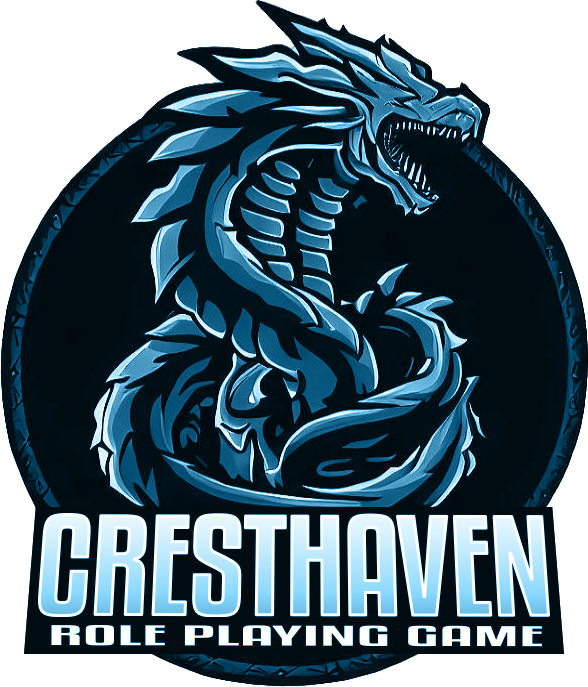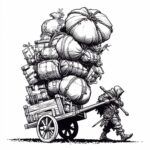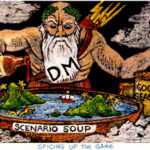XP Summary
Core Rules:
- 1 GP = 1 XP (non-magical treasure safely returned)
- Monster XP = use the bestiary XP value as written
- Situational XP = per DM discretion
- Divide XP evenly among all PCs
- Hirelings do not gain XP (they’re paid employees, not adventurers)
Important: XP is not meant to be balanced. Dangerous delves yield high reward, but death is always a risk. The pace of leveling reflects the world’s danger, not a fixed timeline.
What is Leveling Up?
As characters adventure, they gain experience points (XP) that eventually allow them to level up. Leveling up represents a character’s growth in skill, power, and capability. When a character levels up, they gain:
- Increased Hit Points – More resilience to survive dangerous encounters
- Better Attack Bonuses – Improved ability to hit enemies in combat
- Enhanced Abilities – Stronger skill bonuses and new capabilities
- Access to New Powers – Spells, class features, and special abilities
However, a character’s level is just one measure of their power. Equipment, reputation, and knowledge gained through adventures are equally important. A well-equipped 3rd level character with a fearsome reputation can be more formidable than a poorly-equipped 5th level character nobody has heard of.
How the DM Awards Experience Points
The Dungeon Master tracks experience points and awards them to players based on their adventures. XP comes from multiple sources throughout the game.
Treasure XP
The primary source of experience is treasure. Characters gain 1 XP for each 1 Gold Piece value of non-magical treasure they successfully return to safety. Simply discovering treasure is not enough; the party must get it out of the dungeon alive. Treasure is heavy and requires careful planning to transport. See Encumbrance Rules for carrying capacity.
Magical items do not count toward XP unless sold for gold. A powerful magic sword might save your life, but it won’t grant experience until converted to coin. This reinforces the logistical challenges of adventuring and forces meaningful choices about what to carry out of dangerous places.
Monster XP
Each monster has an XP value listed in the bestiary. Use the bestiary XP value as written. This XP is awarded whether the party defeats the monster in combat or resolves the encounter through negotiation, stealth, or clever thinking. Avoiding unnecessary violence yields the same XP as fighting.
Experience for encounters is divided evenly amongst the whole party.
Note: Hirelings do not gain experience. They are paid employees, not adventurers, and are rewarded with salary and/or a share of the treasure.
Situational XP Awards
Beyond treasure and monsters, the DM awards XP for player actions, decisions, and roleplaying throughout the adventure. These awards recognize clever thinking, heroic actions, and good gameplay.
- Performing Skills – Award 25 XP when a player uses a skill in a meaningful way, such as picking a crucial lock under pressure, tracking enemies through difficult terrain, or negotiating with hostile NPCs. Not every skill check qualifies, only those that move the story forward or overcome significant obstacles.
- Clever Ideas – Award 25 XP for a clever but futile idea, or 100 XP for a clever and useful idea.
- Quick Thinking – Award 100 XP for a quick-thinking idea or action that helps the party.
- Critical Actions – Award 200 XP for a critical plan or action that saves self or an ally, or 400-1000 XP for saving the entire group.
- Heroic Sacrifice – Award 100-300 XP for endangering self to save others, or 500-700 XP for self-sacrifice to save others.
- Deductive Reasoning – Award 100-200 XP for using deduction or insight to solve problems.
- Good Judgment – Award 50 XP for making wise decisions under pressure.
- Playing In Character – Award 50 XP when players add to the roleplaying experience by staying in character.
- Daring Actions – Award 50-100 XP for bold, daring actions whether clever or not.
DM Guidance: Award situational XP sparingly, typically 1-3 times per session per player, to maintain treasure as the primary XP source. These awards should feel special and memorable, not routine.
One Level Per Session
A character cannot gain more than one level of experience in one session. If this occurs, it is a sign that your DM is giving out far too much treasure. In the event that this happens, the character gains just enough experience to reach the next level. Any excess XP is lost.
You Leveled Up, Now What?
Once a character has collected enough experience points to advance to the next level, reference the character’s class page. Leveling up will open new options for players: more hit points, better skills, more mana, and an improved ability focus.
Each character class page has a call-out to their advancement changes for the first few levels.
At each new level, a character gains 1 additional hit dice of hit points (plus their constitution bonus). Each class description lists the hit die to roll.
For example: A Cavalier with a Constitution of +1 would roll 1d8 +1 each time they go up a level and add it to their total hit points.
Losing Levels
Some monsters possess the terrifying ability to drain levels from characters. Creatures like wights, wraiths, and other undead horrors can steal the very essence of a character’s experience with their attacks. Your DM will guide you if this happens.
Experience Point Requirements
| Level | Experience Needed | Ability Focus |
|---|---|---|
| 1st | 0 | +1 |
| 2nd | 2,000 | +1 |
| 3rd | 4,000 | +2 |
| 4th | 8,000 | +2 |
| 5th | 16,000 | +3 |
| 6th | 32,000 | +3 |
| 7th | 64,000 | +4 |
| 8th | 128,000 | +4 |
| 9th | 256,000 | +5 |
| 10th | 512,000 | +5 |
This Post Has 3 Comments
Leave a Reply
You must be logged in to post a comment.






In the ability score page, constitution is mentioned to play a role in hit points on level, but it is not mentioned here, could that be cleared up?
Are any ability points given on level?
Add your Constitution bonus at each level with the hit dice
Cool, thanks!